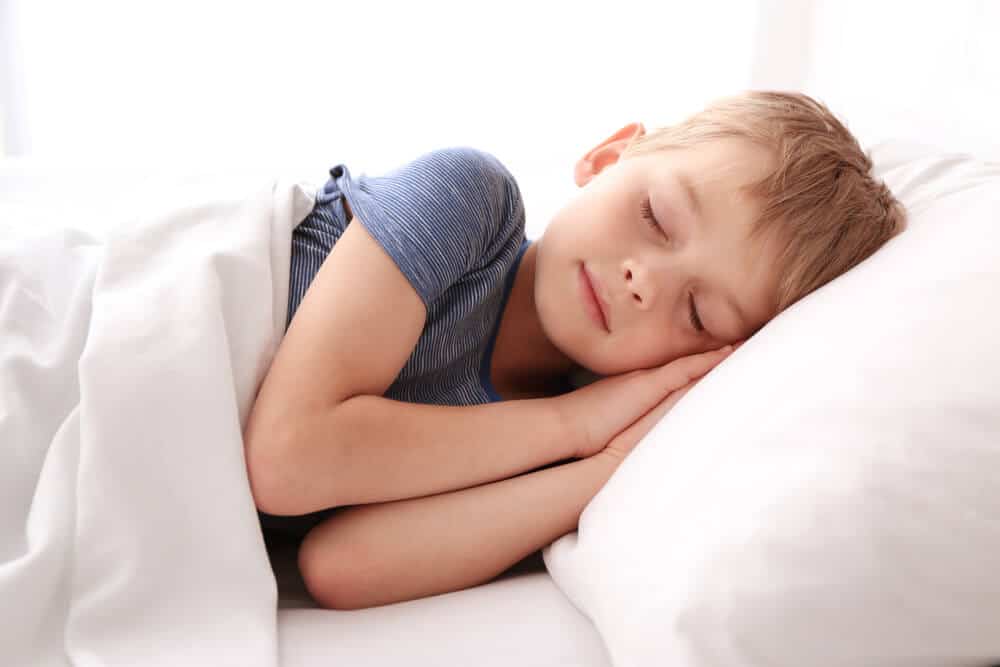Take a quick walk down the medicine aisle at any grocery store, and you’re likely to notice a shelf with melatonin gummies labeled “for children.” Though supplemental melatonin is only regulated by the FDA as a dietary supplement, meaning, the FDA regulates it less strictly than a prescription or over-the-counter drug, it still appears in stores among kids’ vitamins and medicine and in pediatricians’ prescription history. The level of safety, however, in using melatonin to treat a child’s sleep problems is still speculated among many parents and medical professionals.
Sleep disturbances are no stranger to children or their parents. An estimated 25 to 30 percent of infants and children suffer from sleep problems, according to the Cleveland Clinic website, and treatment can vary from case to case.
What is melatonin?
Understanding melatonin and its role in the sleep cycle is vital in order to also comprehend why sleep disturbances occur. Melatonin is a natural hormone the body produces that helps regulate its circadian rhythm. Alternatively, people with sleep disturbances or disorders often take melatonin in supplemental form to improve their sleep.
A 2019 study from the Journal of Translational Medicine concluded using melatonin can be safe in treating pediatric sleep disorders, but specifics on dosage were not confirmed and will differ based on a child’s age and any health conditions.
Melatonin alone is typically not enough to improve a child’s sleep problems. If a doctor prescribes melatonin for a child with a severe sleep problem, they are also likely to encourage the child and parents to pursue counseling from a sleep consultant to improve bedtime behaviors and thoughts that impact the child’s sleep quality. This process may involve altering the child’s bedtime routine, eating dinner earlier, creating a comfortable sleeping environment for the child and facilitating open communication between the parents and child about sleep patterns.
What are the signs of a chronic sleep problem?
One of the first steps in determining the appropriate treatment plan for a child’s sleep disturbance is looking at the child’s behavior patterns. There are a variety of sleep problems that children can develop, but determining whether or not symptoms indicate a serious sleep problem can be difficult.
Dr. Beth Malow, professor of Vanderbilt’s neurology and pediatrics departments and director of the Medical Center’s Sleep Disorders Division, says there are clear signs that indicate a child might be struggling with a chronic sleep problem. Those common signs, she says, include difficulty falling asleep, night wakings, snoring and either sleepiness or overactivity during the day. “Children are often overactive rather than sleepy,” she says.
Some of the most common pediatric sleep problems include:
- Delayed sleep phase disorder
- Behavioral insomnia of childhood
- Obstructive sleep apnea
- Night Terrors
Sleep Problems Among Children with Neurodevelopmental Disorders (NDDs)
According to the study from the Journal of Translational Medicine, the presence of insomnia is more common among children with autism spectrum disorders (ASDs), affecting up to 80 percent of children with ASDs. Chronic anxiety, the study states, is part of the heightened risk factor.
Dr. Malow says a “combination of factors” puts children with Neurodevelopmental Disorders (NDS), including autism, at a high risk for sleep problems. Co-occurring medical conditions like seizures and gastrointestinal problems, psychiatric conditions like anxiety and ADHD, medications and various biological factors can impact their risk.
Further, behavioral causes relevant to autism, like “not having the language to understand parent expectations about sleep, a preference for screens and limited exercise,” Dr. Malow says, are other factors that put children with NDDs at a higher risk for developing sleep problems than children without NDDs.
Hyper-arousal and hypersensitivity, two symptoms common in ASDs, can contribute to insomnia, according to the study. In some cases, doctors may recommend small doses of melatonin to help regulate the melatonin already present in their system. Melatonin may improve “sleep parameters” for children with ASDs, the study states.
The same study concluded melatonin may be a treatment option if a doctor confirms the child’s sleep problems are indeed related to delayed sleep phase disorder, a common sleep problem for children with ADHD. This is because low doses of supplemental melatonin can reduce sleep onset delay and increase the child’s sleep duration.
Is melatonin safe for kids?
Dr. Malow was part of the research team in a study released earlier this year that looked at the long-term effects on sleep, growth, body mass index and pubertal development in treating insomnia in autistic children with prolonged-release melatonin (PedPRM). Eighty children ages two to 17.5 years old took part in the study, in which they were given 2, 5 or 10 mg of PedPRM nightly for two years, followed by a two-week “placebo period.”
“Our recent study showed that melatonin was safe, even with two years of use and didn’t delay the onset of puberty,” Dr. Malow says.
The most common side effects of the participants were fatigue, drowsiness and mood swings, but the researchers found no abnormal or harmful effects on their pubertal development.
If parents plan to give melatonin to their children, Dr. Malow says it is important to inform their child’s pediatrician because the supplement can interfere with certain prescription drugs or even mask medical conditions. She advises choosing a supplemental melatonin brand without anything else “mixed” in it, such as Benadryl.
As far as whether or not melatonin supplements are the right choice for every child, Dr. Malow says, “I always start with behavioral approaches—turning off screens, making sure a child is getting sufficient exercise during the day, limiting caffeine, putting together a calming bedtime routine that includes visual schedules. But if a family can’t implement these approaches or the child is too wound up to calm down with them I will consider melatonin.”
Dr. Malow says melatonin can be “synergistic” with behavioral approaches because of its calming properties and ability to promote sleep. She says she would start treatment with behavioral treatments and adjustments, which she says, are more effective than melatonin alone.
“Sometimes melatonin doesn’t work because the child is still using screens or has other poor sleep habits that interfere with sleep,” Dr. Malow says.
Melatonin is being added to chocolate flavored supplements and even full bars of melatonin chocolate to make it easier to administer to children.
A deeper look into alternatives to melatonin
Some parents may not feel comfortable giving their child supplemental melatonin, even in small doses. Implementing behavioral changes first, like Dr. Malow mentions, is one way to begin treatment for children with noticeable sleep problems. A child sleep consultant can help address those issues.
Renee Wasserman, P.T., M.P.H. is a St. Louis based child sleep consultant who helps children from birth to ten years of age with sleep problems. Her process involves counseling through FaceTime, phone calls, emailing and sleep-log support, and she helps children in St. Louis and around the world find solutions for better sleep.
Empowering parents to set boundaries, Wasserman says, is a large part of her work, especially for parents of toddlers. “I’ve had people say it’s saved their marriages.”
Wasserman says the majority of sleep challenges can be solved with behavior modification and age appropriate sleep schedules, rather than melatonin.
“I have found that many pediatricians are suggesting the use of melatonin before trying other solutions,” she says. “I have worked with many families who came to me with their child taking melatonin as suggested by their pediatrician and, after working together, they were able to stop the melatonin and their toddler was sleeping through the night.”
Dr. Malow says it is “rather common” for pediatricians to prescribe melatonin to children. “That isn’t necessarily a concern as long as they consider behavioral approaches,” she says. Malow says this can be particularly challenging in a busy practice.
Though Wasserman says she has not helped children with diagnosed sleep disorders, but rather, behavioral issues, she has still found that routine, especially with feeding schedules for babies, is a key component of a child’s sleep quality.
“It’s important for people to know how critical sleep is for children in terms of their development and ability to function day-to-day,” Wasserman says.


